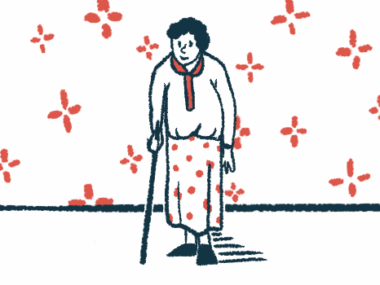Be on Lookout for CAD, Other Conditions That May Affect Cancer Surgery, Physicians Advised
Written by |

Physicians should be on the lookout for chronic medical conditions, such as cold agglutinin disease (CAD), that may affect the outcomes of older patients while recovering from cancer extraction surgery, according to a case report.
The study, “Perioperative management of cold agglutinin autoimmune hemolytic anemia in an older adult undergoing radical cystectomy for bladder cancer,” was published in Urology Case Reports.
Bladder cancer has the highest median age of diagnosis (73 years) of all cancer types. With advancing age, patients often have other medical conditions at the time of cancer diagnosis that might make treatment more difficult.
“The standard of care for muscle-invasive bladder cancer is neoadjuvant chemotherapy followed by radical cystectomy (bladder removal), a major extirpative surgical procedure with high rates of complications, particularly in older adults,” the researchers said.
Before surgery, patients must undergo a thorough clinical evaluation that usually uncovers any underlying medical condition that might interfere with treatment and affect recovery.
Researchers from health services company Geisinger described the clinical case of an 85-year-old man who had muscle-invasive bladder cancer and was diagnosed with CAD before undergoing surgery.
He had been diagnosed with bladder cancer after complaining of pain on the left side of his abdomen and blood in his urine (hematuria). Physicians recommended a course of neoadjuvant chemotherapy as a first-line treatment, but the patient opted to proceed directly to bladder removal surgery.
During his pre-operative examination, lab tests revealed he had anemia (low red blood cell count), as well as abnormal or nearly abnormal levels of haptoglobin and bilirubin, two main components of red blood cells.
He also tested positive on the Coombs test, which detects the presence of immune proteins or antibodies that destroy red blood cells. A smear test showed that his red blood cells tended to stick to one another and form clumps.
Based on these findings, he was diagnosed with CAD, a rare autoimmune disorder in which autoantibodies attack and destroy red blood cells at low temperatures, frequently leading to anemia.
“In light of this new diagnosis, several preventative measures were taken after consultation with hematology and anesthesiology [departments] to reduce [red blood cells’ destruction] and need for blood transfusion during surgery,” the researchers stated.
He underwent plasmapheresis — a treatment that removes potentially harmful antibodies from circulating blood — the day before surgery. The temperature in the operating room was raised to 80°F (about 27°C), and all fluids and blood infusions were also warmed up before use. “Postoperatively, the patient wore a warming device while in bed and all intravenous fluids were heated prior to infusion,” they said.
All these measures were used to minimize the possibility of triggering CAD during and after the surgery.
During hospitalization, he had one blood transfusion to ensure that his hemoglobin and potassium levels remained stable and within normal range. Apart from that, he recovered well from the surgery and was discharged from the hospital six days after the procedure.
Five weeks later he returned to the hospital with severe anemia and received another blood transfusion. Because of this incident, he started to take rituximab — sold in the U.S. by Genentech and Biogen as Rituxan and in Europe by Roche as MabThera — as maintenance therapy to avoid future episodes of severe anemia requiring blood transfusions.
“This case demonstrates the importance of close attention to underlying chronic conditions in older adults considering major cancer surgery and the need for multidisciplinary management in medically complex cases,” the researchers said.





